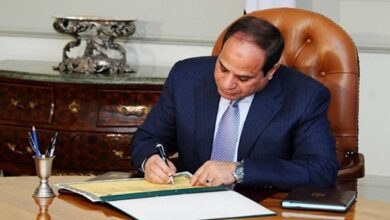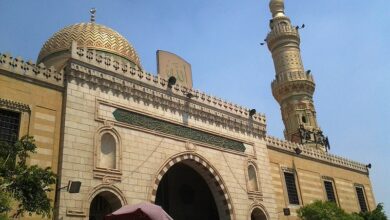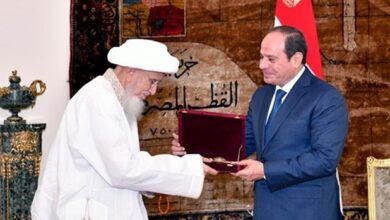
The sub-committees of the House of Representatives on Tuesday began the process of revising over 380 laws issued by interim President Adly Mansour and President Abdel Fattah al-Sisi before the council was elected.
The sub-committees should conclude revising the laws by the beginning of next week, followed by a discussion of the revisions in the House of Representatives' general session.
Article 156 of the 2014 Constitution states: "In absence of the House of Representatives, the President of the Republic may issue decrees that have the force of law, provided that these decrees are then presented to the House of Representatives, discussed and approved within 15 days from the date the new House convenes. If such decrees are not presented to the House and discussed, or if they are presented but not approved, their legality is revoked retroactively, without the need to issue a decision to that effect, unless the House affirms their validity for the previous period, or chooses to settle the consequent effects."
A total of 380 laws, including 50 laws issued prior to adopting the Constitution in January 2014, have been issued by both presidents in the absense of a parliament. The House of Representataives has an optional right to discuss these 50 laws.
Among the most controversial laws issued by Mansour that will not be discussed by the parliament is the law regulating protests, widely criticized by political movements in Egypt and rights organizations for restricting the right of peaceful demonstration and assembly without a prior permit from the security authorities.
Among the most important laws that need to be discussed by the House of Representatives are the laws on the exercise of political rights, the House of Representatives law, the law on the demarcation of constituencies of the House of Representatives elections, the general budget law, the Civil Service Law and others, said parliamentary speaker Ali Abdelaal in a statement Thursday.
The House of Representatives is slated to discuss other controversial laws that attracted criticism after being issued by either Mansour or Sisi.
On March 12, 2015, Sisi issued a new Civil Service Law that caused wide protests by state employees. The law regulates appointment standards, payments, retirements and promotions for civilian workers at government agencies. The law is not applicable to the presidency or Cabinet employees.
Thirty-seven trade unions, rights organizations, public figures and coalitions issued a statement in Septmeber announcing their solidarity with public employees' demands to bring down the new Civil Service Law, saying the law would cause the spread of corruption, facilitate the dismissal of employees, allow the privatization of the service sector in public bodies and decrease salaries and bonuses without taking into account inflation rates.
MP Haitham al-Hariry announced that the Manpower Committee of the House of Representatives unanimously rejected the law.
On July 11, 2015, Sisi issued a law that allows the president of the republic to dismiss presidents of control bodies if they posed a threat to the security of the state or breached their duties in a way that harms the country's higher interests.
Sisi issued a law in July 2015 that allowed the ministries of defense and interior to establish private companies for the security of facilities and the transfer of funds.
He issued another controversial law in June 2015 that allowed the president of the republic to appoint presidents of public universities instead of electing them.
Another controversial law issued was the law that imprisons whoever insults the Egyptian flag and disrespects the national anthem.
Mansour amended the Code of Criminal Procedure which has set a maximum limit for pre-trial detention. The amendment allowed the criminal and cassation courts to extend the remand of the accused to over two years in cases of violence and terrorism.
Mansour issued a decree amending certain provisions of the law of tenders and auctions, which allowed in urgent cases direct contracting upon obtaining a permit from the minister or the concerned official.
The House of Representatives held its opening session on Sunday. The council has to conclude revising over 380 laws, including above mentioned controversial laws by January 25, the fifth anniversary of the uprising that removed Hosni Mubarak, the latest.
Edited translation from Al-Masry Al-Youm




